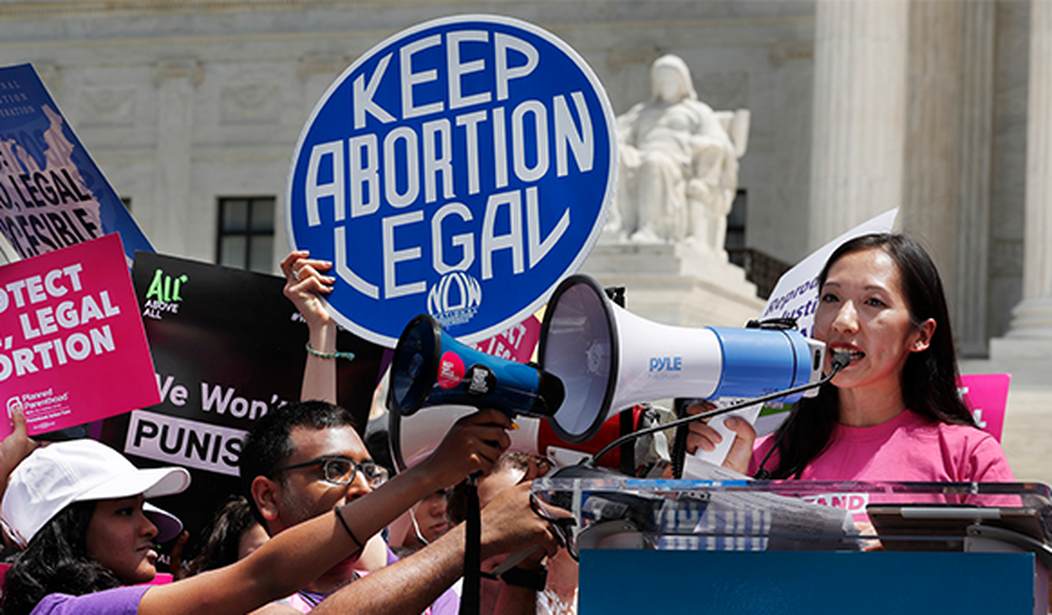Many in the media report on “medication abortion” as a type of abortion administered by pill, as distinct from surgical abortion. But, in more recent reports regarding a California law, news outlets are now using the phrase “abortion medication.”
It’s wording that shouldn’t be taken lightly; abortion is anything but medication.
The phrase surfaced when California's Democratic governor, Gary Newsom, signed S.B. 24, or the “College Student Right to Access Act” on October 11. The legislation requires “each student health care services clinic on a California State University or University of California campus to offer abortion by medication techniques” beginning in 2023.
While the law itself didn’t say “abortion medication,” it deemed abortion a necessity and, even, a good thing.
The law stressed the importance of minimizing “the negative impact of health concerns on students’ studies and to facilitate retention and graduation” and that “having early, accessible care can help them stay on track to achieve their educational and other aspirational life plans.”
In other words, the law read, women need abortions. But nothing is more demeaning than to suggest that a woman’s success depends on ending another’s life. Instead, law and society should strive to empower women to be successful while, at the same time, accommodating for and appreciating their unique ability to grow a human person.
The media also elevated abortion, but as a medication – a cure for a disease.
Recommended
On October 11, ABC News published an Associated Press piece with the headline, “California to require abortion medication at public colleges.”
Likewise, NBC News posted the Associated Press report with a similar headline: “California will require public colleges to stock abortion medication.”
“California will be the first state to require abortion medication on college campuses,” the piece read, before noting that the “medication is an option for women who are less than 10 weeks pregnant.”
That same day, CBS News’ headline read, “California becomes first state to require access to abortion medication at public colleges.”
“[A]ll 34 University of California and California State University systems will need to provide the medication,” wrote Sophie Lewis.
She continued to call abortion “medication” throughout the piece.
“Supporters argued centers are difficult to access for students without cars and the cost of the medication could be out of reach for many,” she added, before pointing to how one study “also found the average cost of the medication was $604.”
Women’s sites like Refinery29 also joined in.
Writer Alejandra Salazar emphasized that “California will be the first state in the U.S. to require access to abortion medication on its public university campuses” on October 12.
“Supporters of the SB-24 say this bill supports many students, especially low-income and first-generation students who are unable to pay for the medication” and lack transportation, she wrote.
She called abortion “medication” a second time when she added, “The average cost of medication was $604.”
Bustle chimed in on October 17. Referencing a Los Angeles Times piece, writer Carolyn de Lorenzo stressed that “abortion medication aborts a fertilized egg.”
But abortion, even an early one by pill, sounds nothing like medication. Instead, according to dictionaries like Merriam-Webster, medication is a “substance used in treating disease or relieving pain.”
Abortion is neither.
An obstetrician-gynecologist who once performed more than 1,200 abortions, collaborated with pro-life group Live Action in 2016 to describe abortion procedures. In one video, Dr. Anthony Levatino details the “two steps” of medication abortion.
“At the abortion clinic or doctor’s office, the woman takes pills which contain Mifepristone,” or RU-486, he said. RU-486 blocks the hormone progesterone, which causes the “lining of the mother’s uterus” to break down, “cutting off blood and nourishment to the baby.”
For the next step, the woman takes Misoprostol, or Cytotec, a day or two later. Together, he continued, RU-486 and Misoprostol “cause severe cramping, contractions, and often heavy bleeding to force the dead baby out of the woman’s uterus.”
“The process can be very intense and painful,” he warned, “and the bleeding and contractions can last for a few hours to several days.” Oftentimes, he said, the woman will “sit on a toilet as she prepares to expel the child which she will then flush.”
But before that takes place, “she may even see her dead baby.” If the abortion takes place at nine weeks, he said, the baby “will be almost an inch long” and the woman “might be able count the fingers and toes.”
The purpose of healthcare – medicine – is to save lives. But the purpose of abortion is to end them.

























Join the conversation as a VIP Member